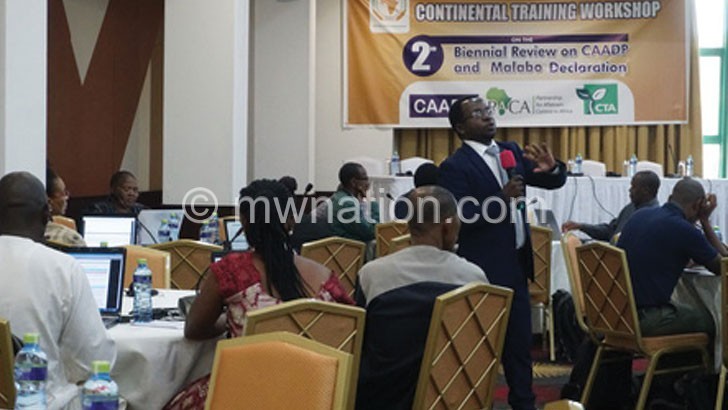Food safety, agriculture trade high at AU summit
Delegates from the 55 member states of the African Union have been meeting in Accra, Ghana during the week conducting the biennial review mechanism for regular country progress reporting on the Malabo Declaration.
In 2014 heads of states and governments agreed in Malabo, Equatorial Guinea capital to transform Africa’s agriculture for shared prosperity and improved livelihoods through harnessing opportunities for inclusive growth and sustainable development.

Ghanaian chief director of Food and Agriculture, Robert Ankobiah opened the meeting on Monday which African Union Commission, Nepad Planning and Coordination Agency and the Regional Economic Communities are spearheading implementation of the Malabo Declaration. In January 2018, Heads of States summit approved the inaugural biennial review report and its Africa agriculture transformation scorecard.
Isaac Shinyekwa, senior research fellow at the Economic Policy Research Centre in Kampala, Uganda presented on the indicator target of trade facilitation measures by reaching 100 per cent of trade facilitation index come 2025. The target plan is to triple intra trade in agriculture commodities and services between countries.
“These include improving infrastructure, information communication technology, border administration, bilateral agricultural and trade agreements including immigration. Once achieved this will boost intra agricultural trade, a target to increase intra continental trade. Africa’s intra trade in general standards is between 16 –18 percent. The indicator seeks to increase this proportion by improving trade facilitation,” explained Shinyekwa said in an interview.
Nadine Umutoni, project coordinator at Kenya-based Accelerating Sustainable Economic Development institute observed that there is inadequate technical capacity in terms of advanced technology and science to produce commodities that meet international standard requirements. This results in rejections of some African agriculture produce in international markets such as European Union.
“Annually data on border rejections are available and published on EU websites. This is also the case where African products cannot move from one country to another due to non-compliance to individual national standards. Implementation of harmonised standards, conformity assessment systems and technical regulations is an important action to ease and facilitate trade on the continent,” reacted Umutoni during the discussion.
She added that to understand this issue, Ministries of Agriculture at country level should be reporting on the value of border rejections of agricultural products to inform national strategies towards implementation of the continental free trade area especially in goods by eliminating barriers to trade.
Malawi representatives came from the Ministries of Agriculture, Irrigation and Water Development including Industry, Trade and Tourism.
An academician from the Lilongwe University of Agriculture and Natural Resources, Limbikani Matumba presented on food safety and agricultural productivity indicators.
Biennial review mechanism aims at strengthening mutual accountability, peer review and learning that will motivate increased performances of each member state to deliver on targets set for Malabo Declaration, through a well-designed, transparent and performance-based monitoring and evaluation system.




